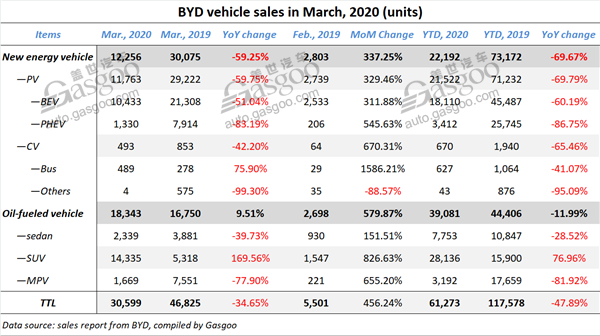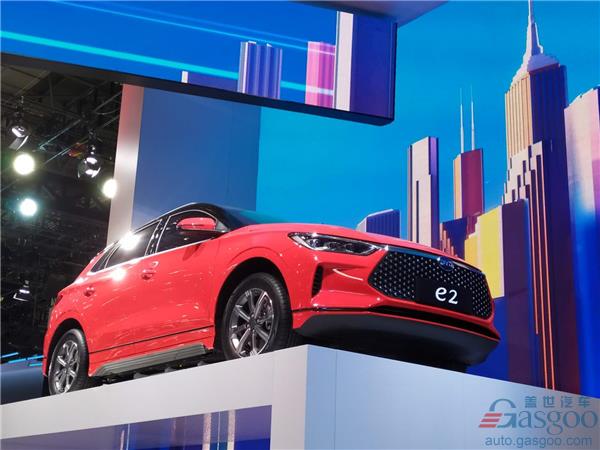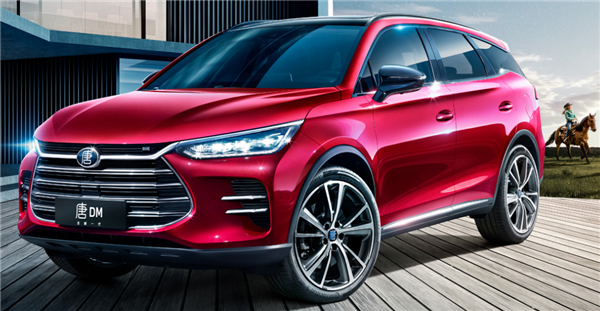BYD’s Mar. sales down by 34.65% year on year, but soar from Feb.
Shanghai (ZXZC)- For the month of March, BYD recorded a 34.65% decrease from the year-ago period, while boasted a stupendous 456.24% increase from Feb. thanks to the rising demands following the effective prevention and control of COVID-19 spread.

Oil-fueled vehicle sales in March grew 9.51% over a year earlier to 18,343 units. Before the virus-hit February, BYD had been achieving year-on-year increase in fuel-powered vehicle sales for five consecutive months.

Nevertheless, NEV sales for the same period were more than halved over the previous year to 12,256 units, for the ninth month in a row showing downturn.
Among NEVs sold last month, 11,763 units were PVs, a year-over-year slump of 59.75%. Of those, sales volumes of BEVs and PHEVs reached 10,433 units (-51.04%) and 1,330 units (83.19%).

Since China has weathered the hardest period amid the fight against coronavirus, the pent-up consumer demands have been gradually unleased accordingly. Thus, both NEV and fuel-burning vehicle arms clocked over 300% surge from a month earlier.
Selling 61,273 vehicles for the first quarter, BYD posted a 47.89% plunge from the prior-year period, versus 56.65% decline in Jan.-Feb. sales. More of the blame should be laid on the 69.67% decrease in year-to-date NEV sales.

(Photo source: BYD)
Both central and local governments in China have rolled out a number of incentive policies to boost revival of auto industry substantially bruised by the coronavirus pandemic. China has determined to extend the validity period of the subsidies on new energy purchases and NEV purchase tax exemption for two years, state media reported on March 31, quoting an executive meeting of the State Council chaired by Chinese Premier Li Keqiang. The policy might be a boost for BYD as one of leading NEV manufacturers in China.
It is noteworthy that BYD on April 2 announced the founding of a BEV R&D joint venture with Toyota after they signed an agreement in last November. The partnership with the Japanese giant is expected to help BYD speed up product R&D so as to enrich its model lineup, and go global.

